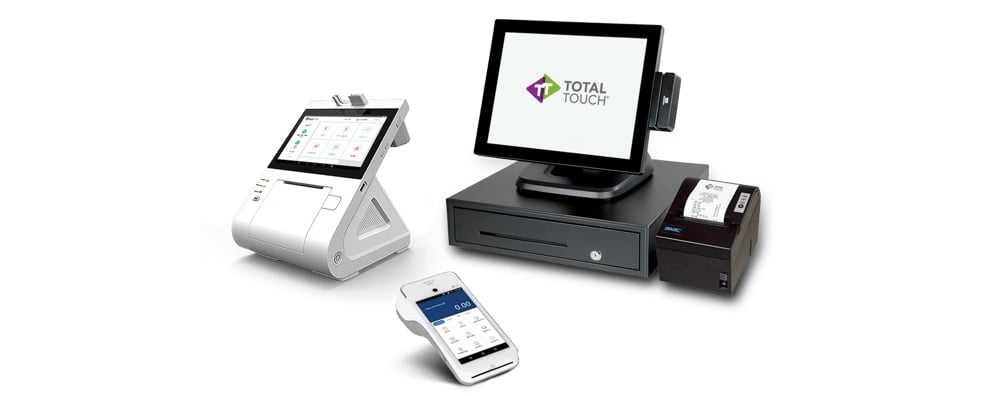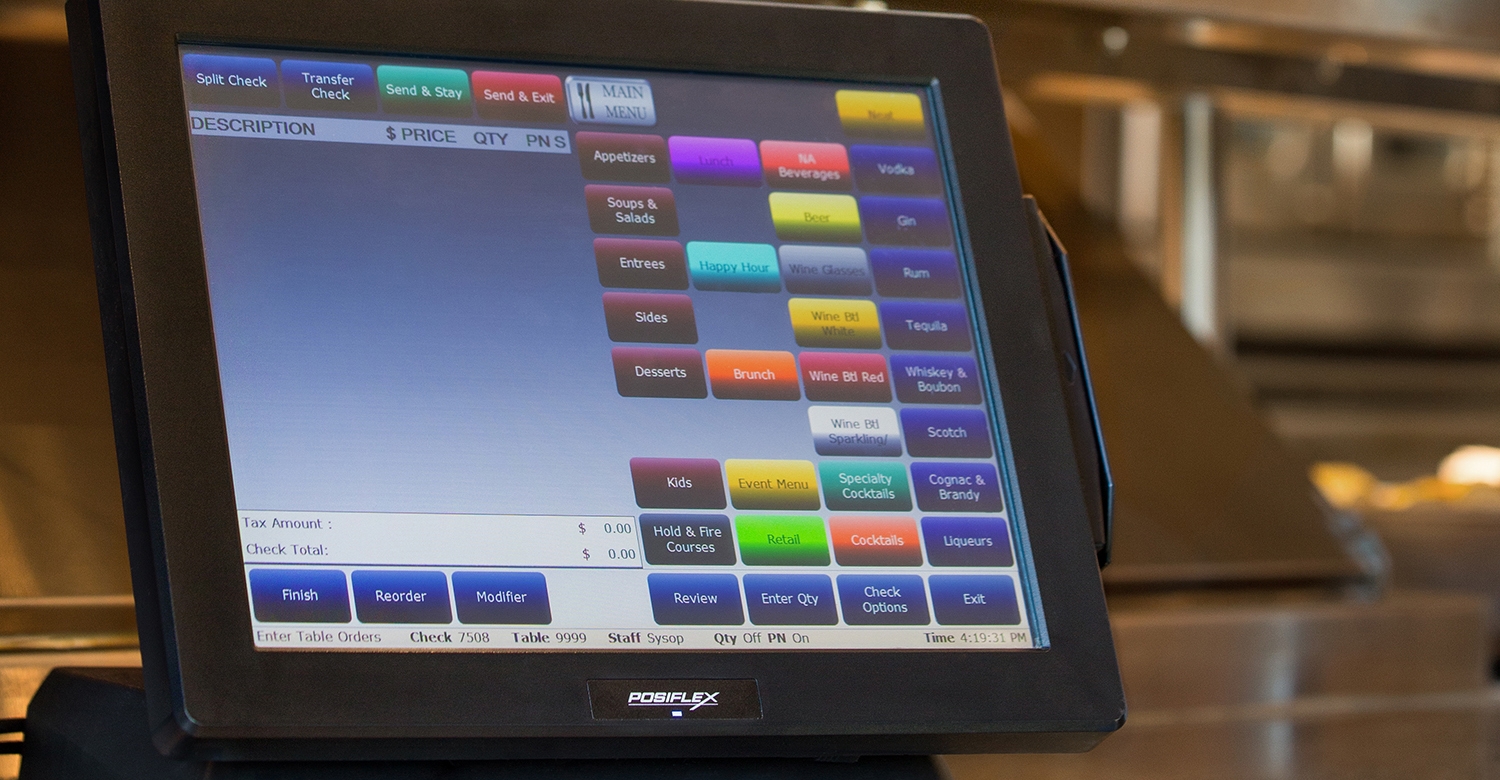Things about Pos
Things about Pos
Blog Article
Point Of Sale Things To Know Before You Get This

POS Systems: Retail Point-Of-Sale Solutions Streamline Transactions
Little Known Questions About Clover Pos.

Hardware Components of a Point of Sale System What makes a POS system tick? It's not just software application; the hardware plays a starring function. Think about it as the body to the software's brain. Without the right hardware, even the most advanced POS software application is simply a pretty face. Important POS Hardware So, what are the must-haves? Let's simplify. The central processing system, often a computer system or tablet, is the heart of the operation. The display or touchscreen show enables personnel to engage with the system. A barcode scanner accelerate the checkout procedure. Remember the days of by hand getting in each code? The trusty receipt printer provides clients with a record of their purchase. A money drawer keeps your cash safe and organized. A card reader allows customers to pay with credit or debit cards. Diving Deeper: Beyond the Fundamentals But wait, there's more! Depending on your organization, you might require specialized hardware. For example, a restaurant may include kitchen printers to relay orders, while a retailer might utilize label printers for product tagging. Ever wonder how your regional bakeshop instantly prints those delicious-looking labels? Picking the Right Hardware: A Balancing Act Choosing the right hardware isn't just about buying the most costly equipment. It's about discovering the sweet spot in between performance, resilience, and click here budget. A little business simply starting might choose for a more standard setup, while a high-volume merchant will require robust, high-performance machines. Is it much better to purchase brand-new or utilized? Consider your options thoroughly. A new system uses the most current technology and warranty security, however a reconditioned system can save you money. The Future of POS Hardware What does the future hold? Anticipate to see even more combination with mobile phones, biometric scanners for worker authentication, and advanced analytics dashboards showed on larger, clearer screens. Envision a world where stock is automatically updated in real-time as items are scanned-- a world where you can track your best-selling item from throughout the world. The possibilities are endless, and the hardware is constantly developing to fulfill the demands these days's organizations. Are you prepared to upgrade your point of sale system?
Software Features and Capabilities: The Heart of Your POS System
Ever watch a seasoned barista slide through a busy early morning rush? Their secret isn't just caffeine; it's a seamless dance with their POS system. The software is the conductor of your company symphony, managing whatever from sales to stock. What notes should you be listening for? What abilities truly matter in today's market?
Stock Management: Beyond Counting Beans
Forget spreadsheets that haunt your dreams. Modern POS systems offer real-time stock tracking, notifying you when your stock of artisanal coffee beans dips precariously low. Believe of it as a digital guardian angel, avoiding those uncomfortable "Sorry, we're out!" minutes to clients. What if you could also forecast need based on historical information? Many systems now offer forecasting tools, an effective weapon against overstocking and lost sales. This assists avoid the circumstance of lacking popular items or building up excess inventory of slow-moving products, both of which can constrain cash circulation and area.
Sales Reporting and Analytics: Deciphering the Information
Sales data is the new gold, and your POS system is the miner. Forget feeling in one's bones how much you offered today. Dive deep into the information to discover trends, identify your very popular products, and comprehend consumer behavior. Which menu item pairs completely with the day-to-day special? Which promotion resonated most with your customers? These insights are not simply fascinating; they're actionable intelligence. Without trustworthy sales reporting, navigating the complexities of business decision-making becomes like sailing without a compass, increasing the opportunity of missteps and missed opportunities.
Customer Relationship Management (CRM): Structure Bridges, Not Walls
Remembering a routine client's name and preferred order is lovely, however scaling that personal touch is tricky. POS systems with CRM abilities permit you to track customer purchase history, preferences, and even birthdays. Picture instantly providing a discount rate on their birthday-- a small gesture that cultivates commitment and encourages repeat service. There is the potential snag of bad information quality, which can lead to unreliable customer profiles and inadequate marketing efforts.
Payment Processing: Streamlining the Deal
The checkout experience can make or break a sale. Seamless integration with various payment approaches-- charge card, mobile wallets, even copyright-- is non-negotiable. Can your system handle split payments? Does it offer protected tokenization to protect client information? A cumbersome payment process is like striking a sour note in your service symphony, possibly disrupting the whole performance. Guaranteeing compatibility with evolving payment technologies and adherence to security standards are critical for maintaining consumer trust and functional performance.
Employee Management: Keeping the Team in Sync
From clocking in and out to handling consents and tracking efficiency, worker management includes streamline operations and improve responsibility. Is scheduling a headache? Many POS systems use integrated scheduling tools, enhancing staffing levels based on predicted need. A typical obstacle that is frequently neglected is the challenge of integrating employee management performances with payroll systems, which can result in mistakes and inadequacies in wage estimations.
Advanced Characteristics: Leveling Up Your Operations
- Table Management: Ideal for dining establishments, this function enables you to imagine your dining room, track table status, and handle appointments.
- Loyalty Programs: Reward your best clients and motivate repeat service with integrated commitment programs.
- Online Purchasing Combination: Perfectly incorporate your POS system with online buying platforms to broaden your reach.
Picking the best POS system is about more than just functionality; it has to do with finding a partner that can grow with your business. Consider your current needs, prepare for future growth, and don't hesitate to ask the tough questions. The ideal software application can change your business from a chaotic cacophony into an unified masterpiece.
Industry-Specific POS System Applications
Think about the regional bakeshop, bustling with early morning consumers yearning fresh croissants. A generic POS system might manage transactions, however can it manage intricate recipes, track component inventory, or automatically change production schedules based upon sales data? Probably not. That is where the charm of industry-specific POS systems shines.
Dining establishments and Hospitality
For dynamic dining establishments, speed and precision are vital. The number of times have you seen servers handling orders, adjustments, and splitting expenses, all while trying to supply excellent service? A restaurant POS system simplifies these procedures, enabling table management, kitchen order tickets, and even online buying integration. These systems often include functions like ingredient-level stock tracking, important for managing food costs and reducing waste. Ever wonder why your preferred meal is often unavailable? It may originate from an absence of appropriate inventory management.
- Table Management
- Cooking Area Order Tickets
- Online Buying Integration
- Ingredient-Level Inventory Tracking
Retail Solutions
Retail, with its varied inventory and client interactions, requires a different set of tools. Think of a boutique clothes store struggling to keep track of sizes, colors, and seasonal collections using a fundamental checkout system. An industry-specific retail POS system uses features like barcode scanning, client commitment programs, and detailed sales reporting. These systems can even integrate with e-commerce platforms, offering a seamless omnichannel experience for clients. Did you know some retail POS systems can predict future sales patterns based upon historic information? Now that is powerful!
The Dangers of a Mismatch
Picking the wrong POS system can produce considerable functional obstacles. A clothes store utilizing a dining establishment POS, for example, would discover it inappropriate for managing inventory with sizes and colors. The absence of correct reporting and analytics might lead to mistaken getting choices and lost earnings. The outcome might be similar to attempting to fit a square peg in a round hole.
Key Factors to consider
Choosing an industry-specific POS system requires cautious examination. Believe about your business's special needs and operational workflows. Does the system incorporate with existing software? Does it offer the essential reporting capabilities? Is it scalable to accommodate future growth? A well-chosen POS system is not just a deal tool; it's a tactical possession that can drive effectiveness, improve customer complete satisfaction, and ultimately, improve your bottom line. Remember, it is a financial investment in your business's future, not just an expense.
Security Factors To Consider for Point of Sale Systems
Ever heard the tale of the mom-and-pop shop that lost whatever since of a single, neglected security defect in their POS system!.?. !? It's a cautionary tale, and it highlights a critical aspect typically overshadowed by the allure of elegant features and structured operations. The truth is, a POS system is only as excellent as its security. What good is a system that crunches numbers in a flash if it enables criminals to swipe customer's data just as quickly?
The Vulnerability Minefield
The digital landscape is a battlefield. Every POS system, regardless of size or elegance, is a possible target. Are you truly got ready for the threats lurking around the corner? The genuine pinch comes when you discover that your out-of-date software has an open hole that hackers can make use of, turning your organization into an unwitting accomplice in identity theft. The difficulty is that hackers are crafty and are always changing their techniques.
Typical Security Spaces and Expert Tips
- Weak Passwords: "Password123" isn't sufficing. Usage strong, unique passwords for all POS system accounts and change them routinely. Two-factor authentication is a must.
- Unsecured Networks: Your Wi-Fi resembles leaving the front door open. Protect your network with strong file encryption (WPA3 if possible) and think about a different network for your POS system.
- Outdated Software Application: Software application suppliers patch security holes all the time. Failing to update resembles welcoming problem. Set up automated updates or schedule routine maintenance.
- Employee Training: Your personnel is your first line of defense. Train them to acknowledge phishing attempts, safeguard passwords, and report suspicious activity.
Data Encryption: Your Shield Against the Dark Arts
Think of data encryption as a secret code. It scrambles sensitive information, like credit card numbers, making it unreadable to unauthorized users. Without encryption, your customers' monetary details resemble sitting ducks, ripe for the picking by cybercriminals. It's not almost safeguarding your consumers; it's about securing your credibility and preventing large fines.
PCI Compliance: The Rulebook You Can't Disregard
If you accept charge card, you're bound by the Payment Card Market Data Security Standard (PCI DSS) It's a set of security requirements designed to secure cardholder information. Failing to comply can lead to fines, penalties, and even the loss of your ability to process credit card payments. It's a headache, yes, however it's a required one. Consider PCI compliance as the cost of doing business in the digital age.
Consider this: every transaction processed through your point of sale is a possible entry point for destructive stars. By executing robust security procedures, you're not simply safeguarding your business; you're safeguarding your clients' trust and ensuring the long-term practicality of your operations. The security of your POS system isn't simply a technical issue; it's an organization vital. It needs continuous alertness, proactive measures, and a commitment to remaining ahead of the curve.